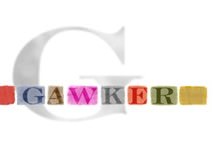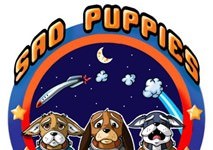One of the choicest literary feuds of 2013 that Rachel Arons lit on in The New Yorker’s casualty report from the cultural battlefield was the multi-round faceoff between Tom Scocca and the proponents of smarm, as typified by BuzzFeed, with its appointment of Isaac Fitzgerald as its first books editor. Fitzgerald, former director of publicity at West Coast publisher McSweeney’s and (clearly) all-round nice guy, committed to not saying bad things about books. ” “Why waste breath talking smack about something? … You see it in so many old media-type places, the scathing takedown rip.”

That must be a relief for all those authors and publicists supposedly paying for reviews. Just park your stuff at BuzzFeed and you never need fear another one-star again. Think of all the money you could save.
Fitzgerald already has done one good thing for literature – he inspired what is perhaps 2013’s best two-word title for an article: Scocca’s brilliant coinage “On Smarm” in Gawker. Scocca then went through the 57 varieties of smarm, unction, oil, schmooze, grease, saccharin, and other emetics currently being purveyed by publicists, politicians, puffers, pumpers, hype merchants and … well … BuzzFeed books editors across the U.S. cultural and political landscape. Admittedly, Scocca wasn’t being entirely original: He admits riffing off David Denby, himself a New Yorker film critic, and his 2009 book Snark: It’s Mean, It’s Personal, and It’s Ruining Our Conversation. And, as any reader of Lewis Carroll knows, the snark is an endangered species – being hunted to extinction these days, it seems. After all, can’t have snarks running around America’s streets in an epoch whose values are typified by rich New Yorkers hiring people to be their friends.
“Why, smarm asks, can’t everyone just be nicer?” asks Scocca. Fitzgerald explicitly follows this dictum in what’s now actually known as the Bambi Rule (though actually coined by Thumper): “If you can’t say something nice, don’t say nothing at all.” And apparently, Fitzgerald believes that the online community understand that books are “something that people have worked incredibly hard on, and they respect that.” Well, if hard work alone is a criterion of value, then I’m sure that all the hard work that the Nazi Party put into the Final Solution deserves huge respect. Meanwhile, if you don’t help a writer to improve, if you don’t show them where they can get better, how are you helping them?
Actually, for anyone who actually reads or cares about books, or writing, there are plenty of reasons to want to do the exact opposite. Did Aeschylus worry about being nice? Do Macbeth or Lear follow the Bambi Rule? Did the preacher of Ecclesiastes? And for students of literature who want to look a little wider than Walt Disney cartoons for their moral precedents, I recommend Alexander Pope’s The Dunciad, which trashed virtually every other mediocre and over-promoted writer of his age in fine style – and incidentally enriched the English language with a poetic masterpiece. I could multiply other examples in spades, but then I guess a books editor who draws his inspiration from Thumper may not have got as far as Pope yet, so perhaps Fitzgerald should start there first before he gets overloaded.
I’m not sure whether BuzzFeed’s books section yet carries a health warning under Fitzgerald’s tutelage, but it certainly should consider it. Don’t want lawsuits for diabetic shock after all. And meanwhile if you need any more proof of the power of nasty, if The Dunciad isn’t enough, look at Scocca’s own essay. Fitzgerald’s brief comments inspired a superb diatribe that reads as one of the best critiques of the American scene in years. If that’s not worth a little not being nice, then what is? So my animal conservation motto for 2014 is: Save the Snark.

































Thanks for this (and I’m not being nice). Over-hyped, over-praised thrillers are everywhere in the press and on back-cover reviews, but at least there’s some hard-hitting criticism to be found online, presumably not being paid for. Maybe it’s time to call a halt to authors being reviewed by people they know – – and a restructuring of the five star system where five is for exceptional and four is not just ok-average and bearable. What are one to three supposed to represent, and why can’t a book register no stars? I always start with the one-star ratings.
SAVE a SNARK – – – right on, it should be a bumper-sticker and feature on bar coasters. I’d have one front and back.
Or even with wry apologies to its originator, how about LONG LIVE THE SCATHING TAKEDOWN RIP?